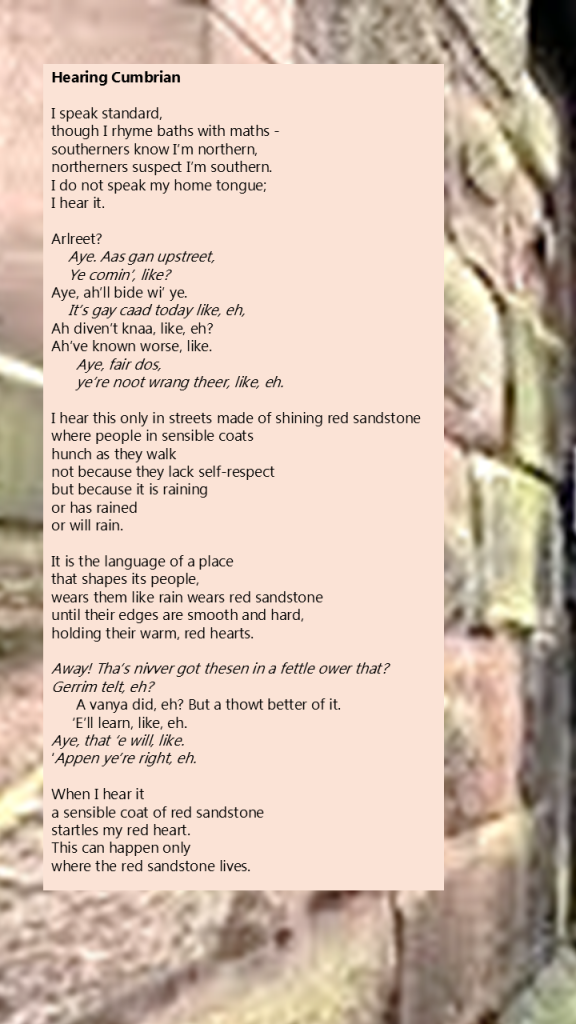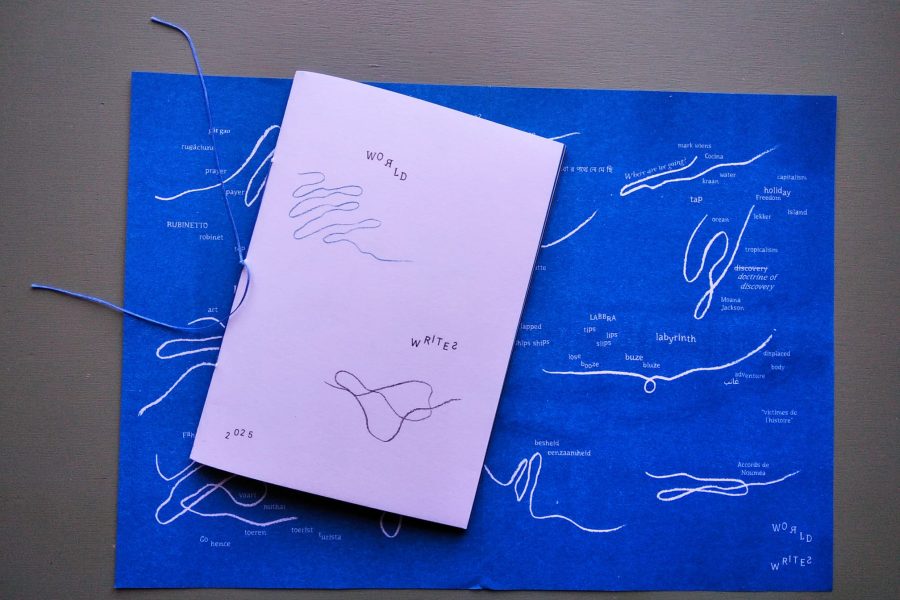I do three jobs and they all connect to each other. In this blog I’m going to talk about two of them and how they connect: writing and teaching English to Speakers of Other Languages (ESOL). As soon as I began training to teach ESOL I found myself writing poetry inspired by my experience, my students and the textbooks and theory. I love teaching ESOL because it feels very worthwhile to help people become more confident with English: it’s one way of allowing them agency where they live now. I love teaching ESOL because it challenges me. It brings me up against my own assumptions about English, its rules, history, value (and values) and it makes me think afresh about the power dynamics in any teaching and learning situation. I love teaching ESOL because the students are brilliant (though not always at learning English.)
There’s enough poetry now that it’s fair to say I’m working on a collection, themed on the language learning space. You can read some of the poems on the Northern Gravy website here. But when I look at what I’ve written so far, I want to be more daring and ambitious and so I looked around for opportunities. This spring I had the opportunity to work on the World Writes programme run by New Writing North – you can find more information about the programme here.
This programme started with Brown Girls Write, run with poet Mymona Bibi for South Asian writers in Newcastle, and a new development was a series of online workshops for people all over the world who write, or want to write, in more than one language. Although I love languages and am quite good at French, which I was exposed to from an early age, I’m monolingual. I almost always think in English. I’ve realised too that in an important sense my home language is West Cumberland dialect, a version of English that, unlike Scouse or Geordie, doesn’t travel well. When I hear it, on the terraces at Brunton Park or in the pub, I know I’m home – but it’s not a language I really speak This fact has set me thinking, and tentatively beginning to write in West Cumberland.

Mymona has come into one of my ESOL classes and run a taster creative writing session, which was very powerful for us all. Students loved speaking and listening to each other’s words even when they couldn’t understand them, and the class connected deeply through this experience – that has set me off thinking about the primacy we give to exchange of meaning in our language learning; and noticing that there’s much more to it than just that!
Back to World Writes. The workshops gave the chance to try out new ways of writing, including writing collaboratively and multilingually, and I’m now actively seeking people to experiment with in multilingual collaborative writing. There is now a beautiful publication from the workshops, including a multilingual word map and poems, one written in English and Greek by participant Natali and me. I’m really looking forward to doing more and being more adventurous.
